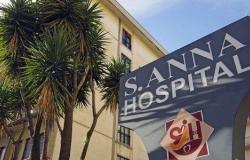South Africa will hold elections to the national parliament and nine provincial parliaments on Wednesday. This vote coincides with an important anniversary: 30 years of democracy in South Africa. In 1994, after decades of racial laws, liberation came. Nelson Mandela was inaugurated on May 9 of that year, stating: “Today we enter a new era for our country and its people. Today we are not celebrating the victory of one party but the victory of all the people of South Africa.” Mandela saw this result as a victory for humanity, reconciliation, peace and freedom.
The party that brought him success was the African National Congress (ANC), which won 62.6% of the votes. Since then it has always maintained an absolute majority. Now, however, according to polls, things would change and it could even fall below 40%. A coalition government is therefore on the horizon. We asked Raymond Steenkamp Fonseca, professor of International Politics and International Political Economy at Stellenbosch University, to help us understand the moment.
Keystone
Mandela puts his vote in the ballot box on 27 April 1994
The socio-economic indicators describe a country currently in great difficulty. Almost half of its 60 million depends on state subsidies, one in three people have no job, electricity is a daily battle and water is starting to run low in some provinces. What era is South Africa in now? What do you think of the ANC’s recipes?
Today Mandela’s era of hope resonates as a golden age concluded. With the advent of Ramaphosa (in 2018) many dreamed of “a new day” in the spirit of Mandela. However, high expectations were not met. The state of the nation is dire. In particular there are two areas that represent the greatest challenges: the economy and good governance. Ramaphosa has also faced headwinds from the global pandemic, but there are structural problems that South Africa continues to grapple with such as high levels of unemployment, particularly among young people, and persistent economic inequality. There is economic stagnation, a contraction in GDP per capita and a worsening of living conditions for many South Africans.
Keystone
Pro-Zuma protesters
Ramaphosa’s “new day” also brought with it the expectation of an administration that would instill good governance, badly damaged by his predecessor, Jacob Zuma. The “lost nine years” of the Zuma government saw a deliberate weakening of governance structures that opened the door to corruption, involving high-level politicians, government officials and private individuals. The Zondo Commission judicial commission that investigated those years produced a report that did not lead to decisive action to tackle corruption and strengthen law enforcement. This weakened state is unable to carry out the programs of the 2013 National Development Plan. The government has introduced several social assistance programs to mitigate the impact of poverty and inequality. Ramaphosa has presented this welfare increase as a sign of success, but this is far from the case. Social security benefits are around $18 a month, but the World Bank sets the extreme poverty threshold at $2.15 per person per day.
According to economist Moeletsi Mbeki (brother of former president Thabo Mbeki), the ANC has committed five deadly sins. Among these: state economic policies based on “reverse discrimination” (Broad-Based Black Economic Empowerment, Bbbee); the construction of a middle class with employment in the public service (Affirmative Action as an employment policy); and the failure to privatize state-owned enterprises. Are they deadly sins? How would you describe the path of the ANC from 1994 to today?
Bbbee policies aimed at redressing the inequalities of apartheid by promoting the economic participation of blacks, women and other historically disadvantaged groups initially had broad support from workers and entrepreneurs. Likewise, Affirmative Action, at least in principle, could help correct demographic imbalances and promote nation-building, but at the expense of meritocracy. In South Africa, despite noble intentions, these policies have opened the doors to cronyism and corruption, in both the private and public sectors. The parastatal sector shows all that can go wrong when politically connected individuals run state-owned enterprises as extended patronage networks. State-owned enterprises such as Eskom (electricity), Denel (defence industry) and South African Airways have fallen into serious financial difficulties due to corruption and mismanagement. Sure, these state-owned companies could have been sold, but that should have happened when they were assets, now they are just liabilities.

Keystone
ANC poster with the face of Cyril Ramaphosa
In any case, nationalization has always been the policy of the ANC. Long-time ANC observers point to the key policy documents of the 1997 Party Conference as a clear statement of what the party intended to do, namely to use essentially the deployment of party loyalists (cadre deployment), as a means of ensuring the ANC hegemony in all sectors of government. The path of the party consists in the faithfulness with which it has followed its revolutionary program of control over the army, the police, the bureaucracy, the intelligence structures, the judiciary, the parastatals and agencies such as regulators, the broadcaster public sector, the central bank and so on. This is the cardinal sin. Constitutional democracy is based on a rigorous system of checks and balances, designed to prevent concentration of power and abuse of office, while maintaining the legal principle of separation of powers.
Among the ANC’s most notable competitors are the Democratic Alliance (DA), a centrist party that leads the only non-ANC province, the national-Marxist Economic Freedom Fighters (EFF), and the new of former president Jacob Zuma (2009-2018) uMkhonto weSizwe (Mk). Who are these adversaries? Which of them could be part of the new government coalition with the ANC?
South Africa is an electoral democracy with a dominant one-party system. The ANC won 57% of the vote in 2019. The most consistent opposition is the Democratic Alliance (DA). Several parties have joined the DA to create the Multi-Party Charter (MPC) with the aim of bringing the combined ANC-EFF share below 50%. Among these there is also the IFP, a predominantly Zulu party, the largest ethnic group in the country. Internal factions within the ANC have led to the creation of separate parties, such as Julius Malema’s EFF. More recently, the political faction loyal to Jacob Zuma broke away to create the MK, (name after the former military wing of the ANC) which claims the legacy of the “armed struggle” of national liberation. Both Zuma and Malema are politically astute enough to wait until they are in a strong enough electoral position to extract maximum concessions from the ANC in case the ANC falls below 50%.

Keystone
‘Three years without electricity, we don’t vote’
According to former president Thabo Mbeki, an inexorable “shrinkage” of the state is underway. What are the consequences of this abdication of the State from its essential role?
The new South Africa was founded on the promise of providing services, but those who can afford them have long relied on private security, healthcare and education. Now this also applies to electricity and water. People are finding solutions to minimize dependence on the state. The new aspect lies in the fact that it is no longer just the rich who look less and less at the State, but also the poor communities. People fill potholes in the streets on their own initiative. There are many NGOs and humanitarian agencies involved in providing services, promoting small-scale agriculture and primary education. All this, of course, cannot replace the organizational capacity and finances of the state, but these initiatives are taking place due to the government’s loss of authority and credibility in translating plans into actions. Of course, the hollowing out of state capacity means that it cannot play its essential role in providing and ensuring access to basic services, and this can have profound and damaging effects on society, exacerbating inequalities, eroding social cohesion and undermining the rights and well-being of the most marginalized members of the population
Finally, what do you feel like celebrating on this 30th anniversary?
South Africa achieved peace without a revolution. This should be celebrated and set an example for populations in conflict. I celebrate the freedom to vote in elections, but I also think about the political negotiations that made it possible.

Keystone
Election posters in Pretoria









